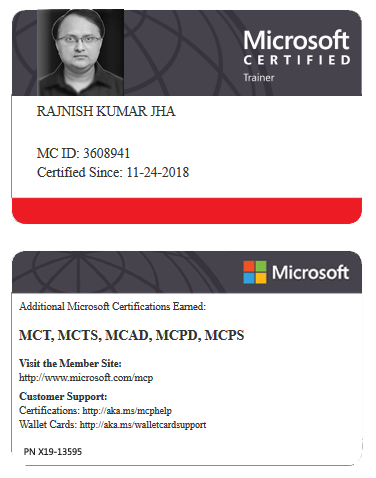Azure DNS is a cloud-based service provided by Microsoft Azure that allows you to host and manage your Domain Name System (DNS) records using Microsoft's global infrastructure.
With Azure DNS, you can handle DNS zones and records for your domains, ensuring that users can easily access your applications or services through user-friendly domain names instead of IP addresses.
What is DNS, and Why Use Azure DNS?
DNS Basics
Domain Name System (DNS) is like a phonebook for the internet.
It translates human-readable domain names like www.example.com into machine-readable IP addresses like 192.0.2.1.
This is crucial because computers and other devices use IP addresses to communicate.
Why Use Azure DNS?
Azure DNS is a domain name service provided by Microsoft Azure that allows you to manage and host DNS records for your domains using the same global, reliable infrastructure that Azure uses for its own services.
It bridges the gap between domain names (e.g., www.example.com) and the underlying resources or IP addresses they represent, enabling smooth and efficient routing of requests.
Azure DNS provides a cloud-based, scalable platform for hosting DNS zones.
It offers:
Global Availability: Uses Microsoft's global infrastructure to ensure DNS queries are resolved quickly and reliably worldwide.
Integration with Azure Services: Makes it easy to connect domain names to Azure resources (e.g., Azure App Service, Azure Storage).
Centralized Management: Manage all your DNS records directly in the Azure portal, CLI, or APIs.
Key Features of Azure DNS
DNS Zone Management:
Azure DNS allows you to create and manage DNS zones for your domains. A DNS zone is a container for DNS records that define how DNS queries are routed for your domain.
High Availability and Reliability:
It leverages Microsoft’s global network of name servers, ensuring fast response times and high availability for DNS queries.
Integration with Azure Resources:
Azure DNS can directly integrate with other Azure services, making it easier to manage DNS for applications hosted in Azure.
Support for All DNS Record Types
It supports all common DNS record types, including:
A: Maps a domain name to an IPv4 address.
AAAA: Maps a domain name to an IPv6 address.
CNAME: Aliases one domain name to another.
MX: Mail exchange records for email services.
TXT: Text records for custom metadata (e.g., SPF, DKIM).
SRV: Service location records.
NS: Name server delegation.
PTR: Reverse DNS lookups.
Scalability:
Azure DNS is designed to handle millions of queries per second, making it suitable for applications of any size.
Security and Compliance:
Azure DNS provides secure and compliant DNS services, leveraging Azure’s built-in security features.
Custom Domain Support:
You can configure custom domains for your Azure services, such as web apps or APIs, by managing their DNS directly in Azure DNS.
How Azure DNS Works
Here’s a step-by-step explanation of how Azure DNS handles a typical DNS query:
1. Domain Registration
Register your domain name with a domain registrar (e.g., example.com).
Azure DNS does not handle domain registration; you'll need to use a third-party registrar.
2. DNS Zone Creation
Create a DNS zone for your domain in Azure DNS.
For example, example.com.
3. Add DNS Records
Add the necessary DNS records (e.g., A, CNAME, MX) to your zone in Azure DNS.
4. Update Name Servers
At your domain registrar, replace the default name servers with the ones provided by Azure DNS (e.g., ns1-01.azure-dns.com).
5. Propagation
The updated name server information propagates across the internet, enabling Azure DNS to handle DNS queries for your domain.
6. Query Resolution
When a user types www.example.com into their browser:
The DNS query is routed to Azure’s authoritative name servers.
Azure DNS resolves the query based on your records and returns the corresponding IP address.
Use Cases
Hosting Public DNS Zones:
Use Azure DNS to manage DNS records for your website or application, ensuring reliable and fast DNS query resolution.
Custom Domains for Azure Services:
Map custom domains to Azure-hosted services like web apps, APIs, or storage accounts.
Hybrid and Multi-Cloud Deployments:
Use Azure DNS to manage domains in hybrid or multi-cloud setups.
Internal Resource Resolution:
Use Azure Private DNS to provide name resolution for VMs and other resources within Azure VNets.
Advantages of Azure DNS
High Availability
Azure DNS leverages a globally distributed network of name servers, ensuring high availability and low latency for DNS queries.
Fast Performance
Microsoft's infrastructure ensures quick response times for DNS queries worldwide.
Seamless Integration
Azure DNS integrates natively with other Azure services, such as:
Azure App Service: Map custom domains to web apps.
Azure Front Door: Configure DNS for global traffic management.
Azure Load Balancer: Enable failover across regions.
Private DNS Zones
Azure DNS also supports private DNS zones for managing DNS within private virtual networks (VNets).
This allows for:
Name resolution for internal resources without exposing them to the public internet.
Custom naming conventions for VMs, databases, and other Azure resources.
Scalability
Azure DNS can handle millions of queries per second, making it suitable for small businesses to large enterprises.
Security and Compliance
Azure DNS inherits Azure’s robust security framework, including:
Role-Based Access Control (RBAC) for managing DNS zones.
Integration with Azure Active Directory for secure access.
DDoS protection for name servers.
Limitations of Azure DNS
No Domain Registration:
You must register domains with third-party registrars, then delegate them to Azure DNS.
Cost for High Query Volumes:
Charges are based on the number of DNS zones and queries, which can become expensive with high traffic.
Tied to Azure Ecosystem:
Although Azure DNS supports non-Azure resources, it’s primarily designed for use within the Azure environment.
Azure DNS vs Other DNS Providers
| Feature | Azure DNS | Other DNS Providers (e.g., GoDaddy, Cloudflare) |
|---|---|---|
| Integration | Seamlessly integrates with Azure | May require manual configurations |
| Performance | Global, fast response times | Depends on provider's infrastructure |
| Private DNS | Fully supported | Limited or no support |
| Domain Registration | Not supported | Supported |
| Security | Azure-native security features | Provider-dependent |
6. Pricing Model
Azure DNS pricing includes:
DNS Zones:
A small cost per hosted DNS zone per month.
DNS Queries:
Charges are based on the number of DNS queries resolved per month.
Example
First 25 million queries: $0.40 per million.
Subsequent queries: $0.20 per million.
Setting Up Azure DNS
Create a DNS Zone:
Go to the Azure Portal.
Navigate to DNS Zones and create a new zone (e.g.,
example.com).
Configure DNS Records:
Add DNS records like A, CNAME, or MX to map your domain to services or resources.
Update Domain Registrar:
At your domain registrar, update the name server (NS) records to point to Azure DNS name servers.
Verify DNS:
Use tools like
nslookupordigto verify that your DNS settings are correctly propagating.
Azure DNS is a powerful, scalable, and reliable solution for managing DNS in cloud-native or hybrid architectures, making it an excellent choice for businesses leveraging the Azure ecosystem.
Azure DNS simplifies domain management while leveraging Azure's global infrastructure for high-performance, reliable, and scalable DNS resolution.
Whether managing public-facing domains or private internal DNS zones, it’s an excellent solution for businesses using Azure.




















Leave a Reply